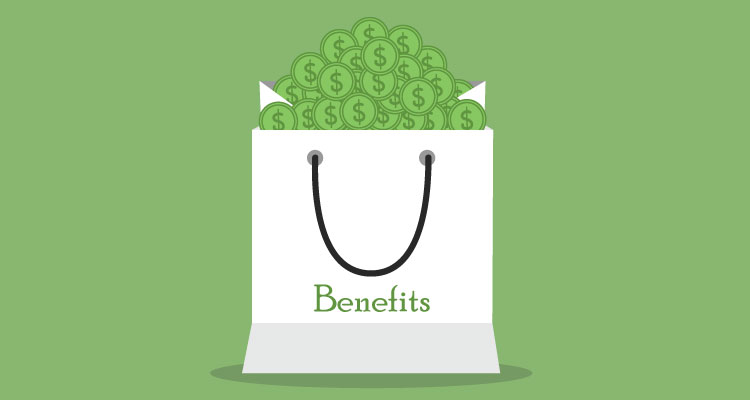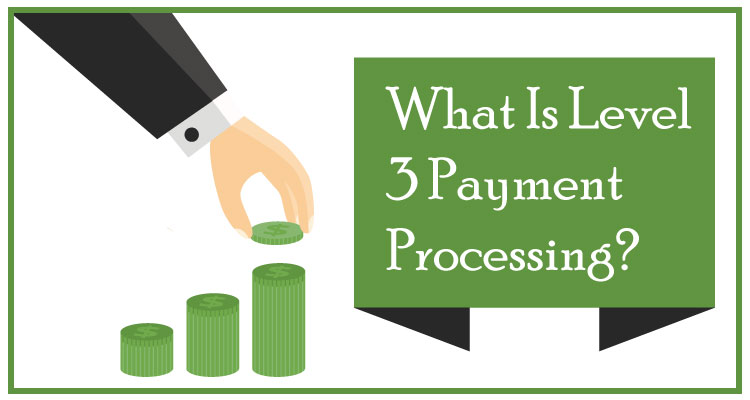If you’re selling a product or service directly to a customer then you’re operating a Business to Consumer (B2C) company. This means that when it comes to processing payments a Level 1 processing will suffice. But, what if you want to join the increasing amount of Business to Government (B2G) and Business to Business (B2B) companies?
If you’re seling services or products to other businesses (B2B), particularly small to medium-sized businesses, then you may want to consider Level 2 processing as a solution. However, if you’re interacting with large corporations or government purchases then the ideal solution is Level 3 payment processing.
Don’t be embarrassed if you’re not familiar with Level 3 processing. After all, it’s a solution that isn’t used by the average merchant. It’s a unique payment gateway or online shopping cart plugin used specifically for B2B and B2G companies in order to optimize interchange rates and save money.
Table of Contents
ToggleLevel 3 Processing Explained
Whenever you accept a credit card payment such as Visa and MasterCard, you rely on “interchange fees” to determine how much you have to pay the issuing bank every time you process a credit card payment. You’re then placed into one of 3 processing categories – Level 1, Level 2, and Level 3 — with 1 being the highest rates and 3 being the lowest.
Since corporate and government purchase card transactions are priced differently than standard consumer credit card transactions, it’s important for you to receive the best rate possible for these types of purchases.
Unlike Level 1 processing, which only requires the names, account numbers, and billing addresses, of your customers, Level 2 and 3 processing requires more payment details like:
- Tax IDs
- Customer codes
- Tax amounts
- Item descriptions
- Freight amounts
Level 3, goes a step further and will need the following details in order for you to qualify:
- Ship-From Zip Code
- Destination Zip Code
- Invoice Number
- Order Number
- Item Product Code
- Item Commodity Code
- Item Description
- Item Quantity
- Item Unit of Measure
- Item Extended Amount
- Freight Amount
- Duty Amount
Typically you’ll need to have around 15-20 fields. However, there are some circumstances that may require up to 100 fields!

The Benefits of Level 3 Processing
It may seem like you’re going through a lot of trouble to qualify for Level 3 processing, but financially it’s worth the effort.
Because you have provided Visa and MasterCard with so much information, they deem the transaction less fraudulent. This means that you’ll receive a lower interchange rate than Level 1 or Level 2 processing.
In fact, Level 3 transactions usually cost 0.50% to 1.50% less than standard Level 1 transactions. And, it’s been found that Level 3 credit card processing can lower transaction costs by up to 40%.
Another benefit of Level 3 processing is that it gives you more control of your business. This includes being able to restrict who in the organization is allowed to buy, how often a card be used, and the size and dollar amount of each purchase. You can also easily track these transactions and see where the money is going and why exactly this money is going where it is.
Finally, Level 3 processing gives you the chance to attract more high-profile clients and settle accounts faster. Both of these are a nice perk if you’re experiencing cash flow problems or your are ready and want to grow your business.

Accepting Level 3 Payments
Standard credit card terminals are not capable of handling Level 3 credit card processing because of all the data field that you must enter. In order to submit Level 3 data you’re going to use specialized payment software through a secure website application.
Here are several companies that offer L3 processing:
- BluePay
- Dharma Merchant Services
- Revolution Payments
- Nationwide Merchant Solutions
- Gravity Payments
Conclusion
Level 3 processing isn’t for everyone. If you’re strictly a B2C company or only work with small to mid-sized businesses, then you’ll have to use Level 1 or 2 processing.
However, if you’re conducting business with enterprise-level businesses or governments, then Level 3 is a must if you want to obtain the lowest interchange rates and maintain control of your business.












